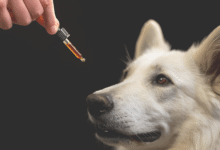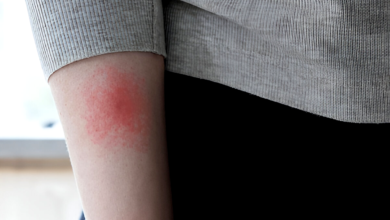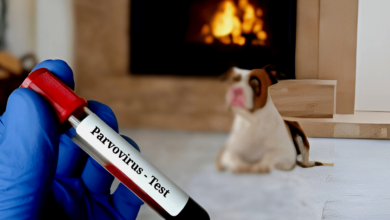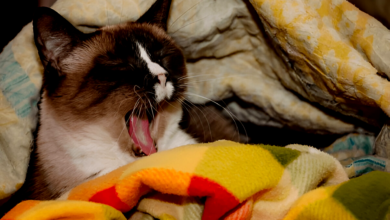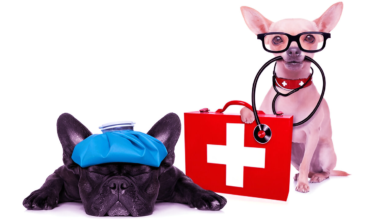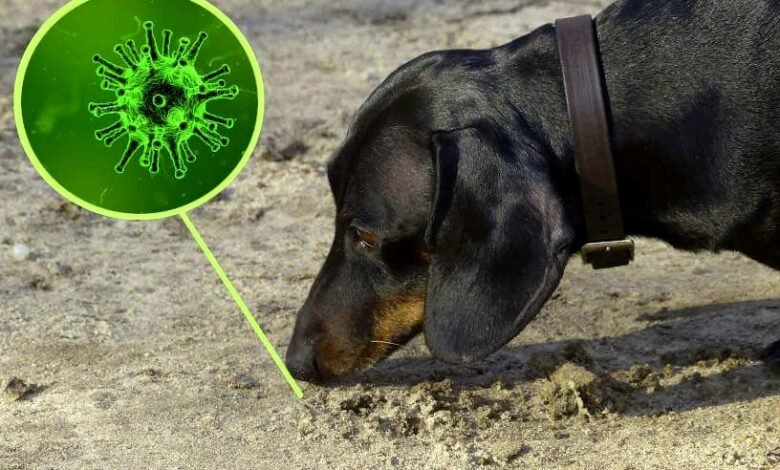
What is parvo in dogs and how can you prevent it?
Canine parvovirus (Parvo in Dogs) is a dreaded and highly contagious virus that poses a severe threat to dogs, especially puppies. Understanding this silent threat involves unraveling the intricacies of its origins, symptoms, treatment, and preventive measures.
Understanding Canine Parvovirus
What is canine parvovirus?
Canine Parvovirus, commonly known as Parvo, belongs to the Parvoviridae family. It manifests in two forms: the more common intestinal form and the less frequent cardiac form. The intestinal form wreaks havoc on a dog’s digestive system, causing severe symptoms.
How is parvo transmitted?
Parvo spreads through direct contact with an infected dog or indirect contact with contaminated surfaces. The virus is resilient, surviving for months in the environment, making it crucial for pet owners to be vigilant about their dog’s surroundings.
Read More: Is Borax Dangerous for Cats and Dogs?
Symptoms of Parvo in Dogs
Gastrointestinal Symptoms
Parvo often begins with gastrointestinal symptoms, including severe vomiting and bloody diarrhea. The virus attacks the lining of the intestines, leading to malabsorption of nutrients and rapid dehydration.
Cardiovascular Symptoms
In some cases, parvo affects the heart, causing myocarditis. This can result in sudden death, underscoring the urgency of early detection and treatment.
General Malaise
Dogs infected with Parvo often display a general malaise characterized by lethargy, loss of appetite, and a lack of interest in their surroundings. Identifying these signs early is crucial for prompt intervention.
Diagnosing Parvo: When to Seek Veterinary Help
Early diagnosis is pivotal in treating Parvo effectively. If your dog exhibits severe vomiting and diarrhea, it’s imperative to consult your veterinarian immediately. Diagnostic tests, including fecal examinations and blood tests, aid in confirming the presence of the virus.
Treatment Options for Canine Parvovirus
Hospitalization
Severely affected dogs often require hospitalization for intensive care. This includes continuous monitoring of vital signs, intravenous fluid therapy to address dehydration, and isolation to prevent the spread of the virus.
Fluid Therapy
Dehydration is a significant concern in Parvo cases. Intravenous fluid therapy helps maintain hydration levels, correct electrolyte imbalances, and support the dog’s overall recovery.
Medications
Antibiotics may be prescribed to manage secondary bacterial infections, and antiemetics can help control vomiting. These medications play a crucial role in supporting the dog’s immune system during the battle against Parvo.
Preventing Parvo: Vaccination and Hygiene
Importance of Vaccination
Vaccination is the most effective method of preventing Parvo. Starting at six weeks of age, puppies should receive a series of vaccinations, including booster shots as the veterinarian advises.
Hygiene Practices for Pet Owners
Beyond vaccination, maintaining good hygiene practices is paramount. Regular disinfection of living spaces, avoiding contact with unknown or sick dogs, and practicing proper hand hygiene can significantly reduce the risk of Parvo.
Parvo in Puppies: Special Considerations
Vulnerability of Puppies
Puppies, with their developing immune systems, are particularly vulnerable to Parvo. Extra care should be taken to ensure their environment is clean and they receive timely vaccinations to bolster their immunity.
Survival Rates and Prognosis
Varied Survival Rates
Survival rates in Parvo cases vary based on the promptness of intervention and the severity of the case. Early detection and appropriate treatment significantly improve the prognosis.
The Emotional Toll on Pet Owners
Navigating Emotional Challenges
Witnessing a beloved pet suffer from parvo is emotionally taxing. Pet owners should seek support from veterinary professionals and fellow dog enthusiasts to navigate the challenging journey of caring for an infected dog.
Common Misconceptions about Parvo
Dispelling Myths
Dispelling myths about Parvo is crucial for effective prevention. Misconceptions can lead to complacency and compromise the health of our furry friends.
The Role of Breed and Age in Parvo Susceptibility
Understanding Vulnerabilities
Certain breeds and age groups may be more susceptible to parvo. Understanding these factors can aid in tailoring preventive measures and ensuring a targeted approach to safeguarding canine health.
Recovery and Post-Parvo Care
Dietary Considerations
A carefully managed diet is essential during the recovery phase. Gradual reintroduction of food and monitoring for any adverse reactions are key components of post-Parvo care.
Follow-up Veterinary Visits
Regular veterinary check-ups post-recovery ensure any lingering issues are promptly addressed, ensuring the dog’s sustained well-being.
Supporting a Parvo Survivor: Mental and Physical Well-being
Holistic Support
Recovery from Parvo extends beyond the physical realm. Providing emotional support to a Parvo survivor is integral to their overall well-being.
Community Awareness and Education
Fostering Collective Responsibility
Raising awareness about Parvo in local communities fosters a collective effort to prevent and manage outbreaks. Education empowers pet owners to make informed decisions regarding their dog’s health.
Conclusion
In the battle against Parvo, knowledge is our greatest weapon. By understanding the virus, recognizing symptoms, and prioritizing preventive measures, we can protect our furry companions from this silent threat. Stay informed, stay vigilant, and cherish every moment with your four-legged friends.
FAQs
- Can indoor dogs get Parvo?
- Yes, indoor dogs are still at risk if they come into contact with the virus.
- How long does the Parvo virus survive in the environment?
- The virus can survive for months, emphasizing the importance of thorough cleaning.
- Is Parvo contagious to humans?
- No, Parvo is specific to dogs and does not pose a risk to humans.
- Can adult dogs get Parvo?
- While less common, adult dogs can still contract Parvo, especially if unvaccinated.
- Are there natural remedies for Parvo?
- Natural remedies are not a substitute for veterinary care. Prompt medical attention is crucial for Parvo cases.
